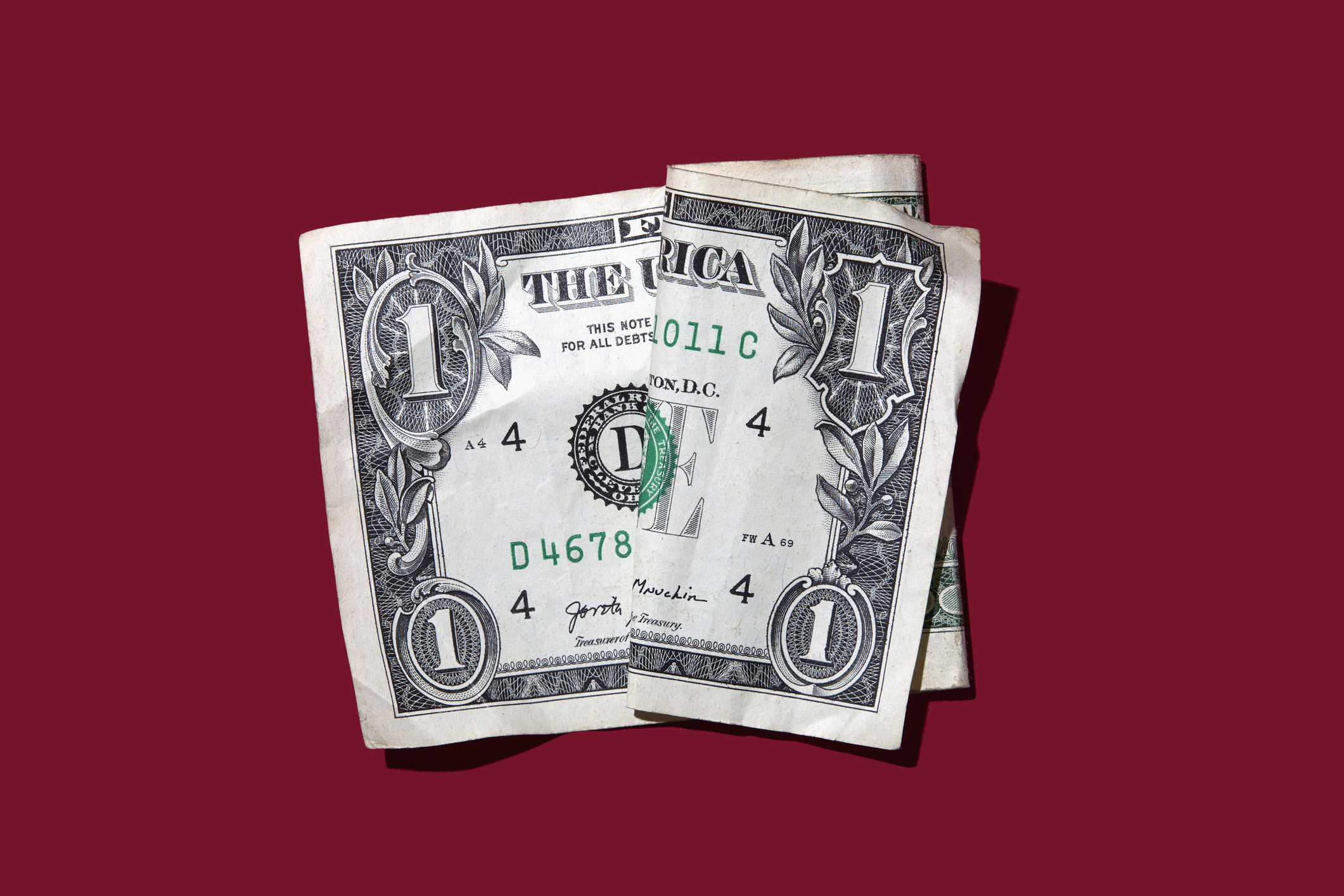Retirement Savings on Track? How Much You Should Have by 55 and 60
See how your retirement savings stack up compared to this Wall Street guide, ranked by age and income.


Profit and prosper with the best of Kiplinger's advice on investing, taxes, retirement, personal finance and much more. Delivered daily. Enter your email in the box and click Sign Me Up.
You are now subscribed
Your newsletter sign-up was successful
Want to add more newsletters?
Editor's Note: "Retirement Savings on Track? How Much You Should Have by 55 and 60" is part of an ongoing series on getting your retirement on track by age. The first story is "Retirement Savings on Track? How Much You Should Have by 50 and 55." The third story is "Retirement Savings on Track? How Much You Should Have by 60 and 65."
It’s retirement savings crunch time. If you are in your mid-50s or early 60s, retirement may be on the horizon and on your mind.
After all, you've likely been in the workforce for years and have at least been thinking about what kind of retirement will make you happy. You may dream of traveling the world, pursuing a hobby, or spending more time with family. Either way, at this age, preparation is a must.
From just $107.88 $24.99 for Kiplinger Personal Finance
Become a smarter, better informed investor. Subscribe from just $107.88 $24.99, plus get up to 4 Special Issues

Sign up for Kiplinger’s Free Newsletters
Profit and prosper with the best of expert advice on investing, taxes, retirement, personal finance and more - straight to your e-mail.
Profit and prosper with the best of expert advice - straight to your e-mail.
During your mid-50s and early 60s, step one is to develop a retirement plan if you don’t already have one and to refine it, if you do, says Sharon Carson, executive director of J.P. Morgan Asset Management.
Determine your ideal retirement age
As you develop your plan, try to establish your ideal retirement age. Will you throw in the towel at 62 as soon as you can collect Social Security, wait until your full retirement age (67 for people born on or after 1960) to collect all your benefits, or hold off until 70 when you'll get 30% more in Social Security benefits?
If you are married, will you retire at the same time as your spouse? Do you plan to stop working entirely, work part-time, or transition to a new career?
It's also a good time to assess your spending needs and determine how much you’ll need in retirement. If the idea of doing a detailed budget stresses you out, Carson says you should have a general idea of how much money is coming in and going out and determine which expenses may be variable and which are fixed.
The variable column could include travel, emergencies, house repairs, health care bills not covered by insurance, and new vehicles. Fixed expenses may include rent or mortgage payments, utilities, health insurance, transportation, and taxes.
After that, think about what expenses may go up or down once you retire to get an idea of how much you’ll need. It’s also a good idea to start thinking about where you plan to live out your retirement years, whether aging in place, downsizing or moving to a more expensive location.
Work on reducing your debt
The mid-50s to early 60s is also the time to reduce your debt if you have any. Work on paying down any high-interest-rate credit cards or loans, and consider whether you will pay off your mortgage before you exit the workforce.
If you want to lower your bills in retirement and are saving enough, that may be a smart move, especially if you have a high mortgage rate.
If your cash reserves are low and your mortgage rate is low, keeping your mortgage while you save more may be a better option. This is where a trusted financial adviser comes in.
Don’t forget your will and estate plan. You should have one by now, but if you don’t, Carson says to get on with it!
Don't beat yourself up if you are lacking in this area. As it stands, 55% of Americans don’t have any estate documents, and only 31% have a basic will, according to a recent survey by estate planning firm Trust & Will.
We curate the most important retirement news, tips and lifestyle hacks so you don’t have to. Subscribe to our free, twice-weekly newsletter, Retirement Tips.
Are you on track with your retirement savings?
With the planning out of the way, are you ready to see if you are on track based on your income?
To determine that JPMorgan put together a guide on how much adults should have saved based on age and income.
The Wall Street bank’s model assumes a 5% annual gross savings rate, a pre-retirement portfolio of 60% equities and 40% bonds, a post-retirement portfolio of 40% stocks and 60% bonds, an inflation rate of 2.4%, a retirement age of 65 and 35 years in retirement.
Keep in mind that these amounts are a general guide. Everyone’s financial situation is different, and some may need more or less in retirement.
See how you stack up below:
Age: 55
Income: $80,000
How much should you have saved: $420,000
Income: $100,000
How much should you have saved: $565,000
Income: $150,000
How much should you have saved: $805,000
Income: $200,000
How much should you have saved: $1.025 million
Income: $250,000
How much should you have saved: $1.295 million
Income: $300,000
How much should you have saved: $1.69 million
Age: 60
Income: $80,000
How much should you have saved: $520,000
Income: $100,000
How much should you have saved: $725,000
Income: $150,000
How much should you have saved: $1.045 million
Income: $200,000
How much should you have saved: $1.33 million
Income: $250,000
How much should you have saved: $1.68 million
Income: $300,000
How much should you have saved: $2.18 million
Think you have a savings shortfall? Here’s what you can do
If you are feeling short based on JPMorgan’s numbers, don’t despair. You still have time to make moves to shore up your retirement nest egg. There are catch-up contributions that let people 50 and older save an additional $8,000 in their 401(k)s and $1,100 in their IRAs for 2026.
If you have a financial adviser, he or she can help you refine your savings strategy to amp it up in the waning years of your career.
“Beware of trying to make up for lost ground by very aggressive investing, as that could expose you to sequence-of-return risk,” cautions Carson. That occurs when poor investment returns early in retirement negatively impact your retirement savings over the long run.
Don't despair
At the end of the day, don’t beat yourself up if you are feeling like you need to do more. The good news is you still have time to shore up your retirement savings. Even raising the amount you contribute to your 401(k) by 5% can have a big impact on your savings.
You can also consider a phased retirement, in which you cut back your hours but don't stop working altogether. A phased retirement is the most desired way to retire and is preferred by Generation X (67%) and millennials (56%), according to the Principal Financial Well-Being Index.
You also have options. You can always downsize, work part-time, curb your expenses, or delay retirement to make it work.
“When you retire can have a big impact on your financial outcome,” says Carson. “What would your plan look like if you retired a few years earlier or later?”
Related content
Profit and prosper with the best of Kiplinger's advice on investing, taxes, retirement, personal finance and much more. Delivered daily. Enter your email in the box and click Sign Me Up.

Donna Fuscaldo is the retirement writer at Kiplinger.com. A writer and editor focused on retirement savings, planning, travel and lifestyle, Donna brings over two decades of experience working with publications including AARP, The Wall Street Journal, Forbes, Investopedia and HerMoney.
-
 4 High-End Experiences Worth the Splurge After 50
4 High-End Experiences Worth the Splurge After 50These curated date ideas provide the perfect backdrop for couples ready to enjoy the very best that the world has to offer.
-
 Health Care Stocks Have Sagged. Can You Bet on a Recovery?
Health Care Stocks Have Sagged. Can You Bet on a Recovery?The flagging health care sector has perked up a bit lately. Is it time to invest?
-
 Costco's Auto Program: Can Membership Pricing Really Save You Money on a Car?
Costco's Auto Program: Can Membership Pricing Really Save You Money on a Car?Costco's Auto Program can simplify the car-buying process with prearranged pricing and member perks. Here's what to know before you use it.
-
 4 High-End Experiences Worth the Splurge After 50
4 High-End Experiences Worth the Splurge After 50These curated date ideas provide the perfect backdrop for couples ready to enjoy the very best that the world has to offer.
-
 Your Retirement Age Is Just a Number: Today's Retirement Goal Is 'Work Optional'
Your Retirement Age Is Just a Number: Today's Retirement Goal Is 'Work Optional'Becoming "work optional" is about control — of your time, your choices and your future. This seven-step guide from a financial planner can help you get there.
-
 Quiz: Do You Know How to Maximize Your Social Security Check?
Quiz: Do You Know How to Maximize Your Social Security Check?Quiz Test your knowledge of Social Security delayed retirement credits with our quick quiz.
-
 Private Capital Wants In on Your Retirement Account
Private Capital Wants In on Your Retirement AccountDoes offering private capital in 401(k)s represent an exciting new investment opportunity for "the little guy," or an opaque and expensive Wall Street product?
-
 It's Time to Bust These 3 Long-Term Care Myths (and Face Some Uncomfortable Truths)
It's Time to Bust These 3 Long-Term Care Myths (and Face Some Uncomfortable Truths)None of us wants to think we'll need long-term care when we get older, but the odds are roughly even that we will. Which is all the more reason to understand the realities of LTC and how to pay for it.
-
 Fix Your Mix: How to Derisk Your Portfolio Before Retirement
Fix Your Mix: How to Derisk Your Portfolio Before RetirementIn the run-up to retirement, your asset allocation needs to match your risk tolerance without eliminating potential for growth. Here's how to find the right mix.
-
 I Thought My Retirement Was Set — Until I Answered These 3 Questions
I Thought My Retirement Was Set — Until I Answered These 3 QuestionsI'm a retirement writer. Three deceptively simple questions helped me focus my retirement and life priorities.
-
 How One Extra Dollar of Income Can Cost You Thousands in Retirement
How One Extra Dollar of Income Can Cost You Thousands in RetirementRetirement Even modest changes in retirement income can raise Medicare premiums under IRMAA. Here’s how a small increase can affect your retirement costs.